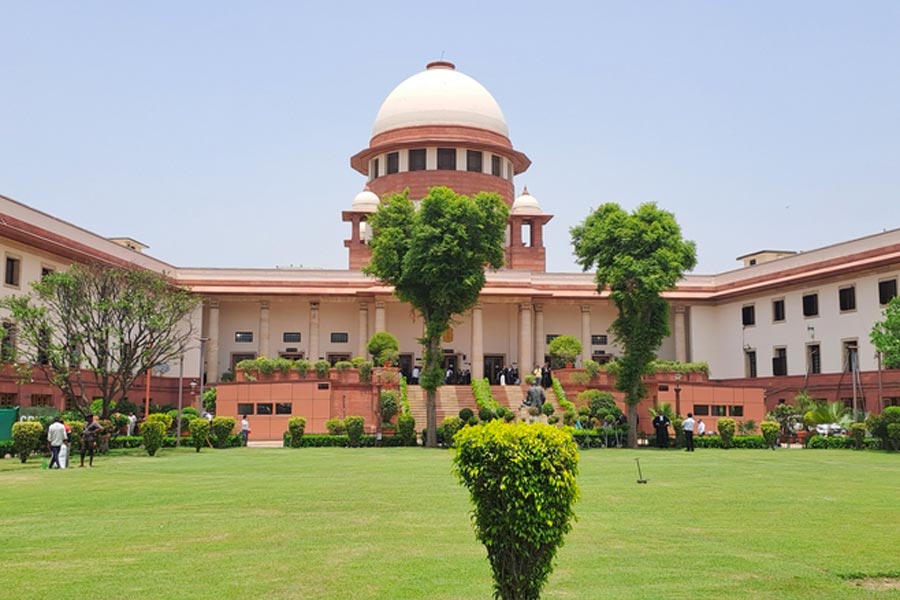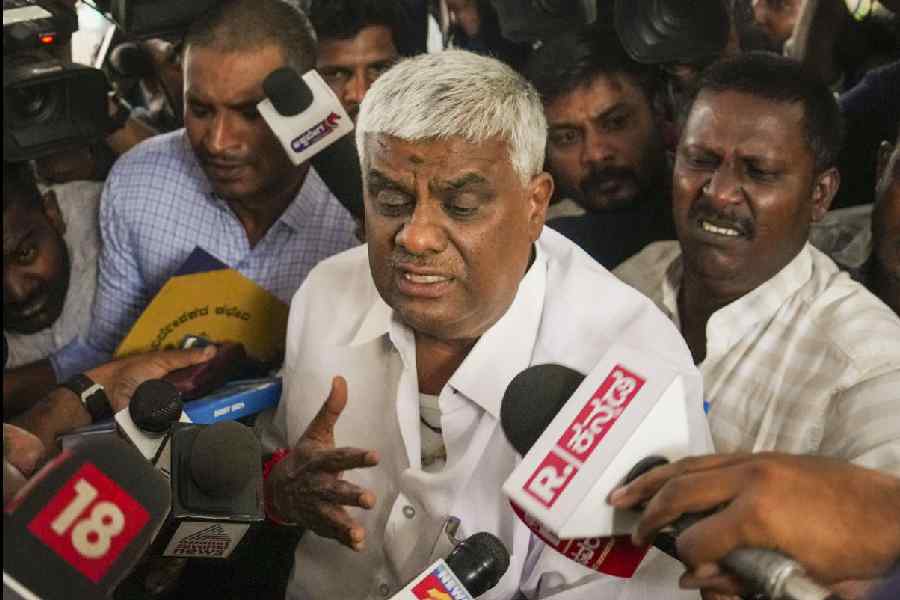The Supreme Court on Wednesday directed the Union home ministry to frame within three months guidelines to be followed by police while briefing the media on investigations and pre-trial matters to prevent “media trials” that cause prejudice to victims and the accused and their families.
A bench headed by Chief Justice of India D.Y. Chandrachud said it was passing the directives to insulate the victims, the accused and the public at large from media trials and biased reporting.
The bench, which included Justices P.S. Narasimha and Manoj Mishra, was dealing with a batch of petitions filed in 2014 by the People’s Union for Civil Liberties (PUCL) and thereafter joined by several individuals seeking regulations on reporting by news organisations, particularly the electronic media.
The PUCL had initially filed the petition accusing the Andhra Pradesh police of killing innocent persons in fake encounters after branding them Maoists and awarding accelerated promotions on the basis of such encounters. According to the PUCL, the police deliberately fed such false narratives to the media for their own vested interests, causing grave prejudice to the victims, the accused and their families.
Later, two more petitions were filed by others raising concern over the tendency of sections of the media to sensationalise crimes.
The apex court had appointed senior advocate Gopal Sankaranarayanan as amicus curiae to assist it in the matter.
During Wednesday's hearing, CJI Chandrachud noted that a questionnaire had been circulated by the amicus to the states and Union Territories. Some responded while others are yet to reply. Sankaranarayanan said media per se cannot be restrained from reporting matters relating to crime and investigations but there was a need for guidelines that they should adhere to in order to protect the interests of the victims and the accused.
There can be no gainsaying the fact that while the media has the fundamental right to freedom and expression, the people have the right to fair and unbiased views, the court said.
The accused has the right to a fair and unbiased police investigation as all such persons are entitled to the presumption of innocence till proven guilty by a court of law, the bench said.
The court said biased reporting also gave rise to public suspicion that the accused had committed an offence. Media reports can violate the privacy of victims, too, the court added.
CJI Chandrachud directed the home ministry to frame guidelines after the states and Union Territories respond.
The bench said the provisions of explanation appended to Section 3 of the Contempt of Courts Act are clear that such reports may expose the publication or the media house to the charge of contempt. The ambit of these proceedings is confined to the pre-trial stage.
“Disclosure of an official version of investigation would ensure that speculation on crime reporting which may be of disservice is reduced and the interest of accused, witnesses, victims is protected. There is a need for a uniform policy to be adopted," the Supreme Court said.
"The nature of the disclosure cannot be uniform since it must depend upon the nature of the crime and the participating stakeholders including the victims, witnesses and accused
"The age and gender of the victim and accused would have a significant bearing on the nature of the disclosure. It should be ensured that the disclosure doesn't result in media trial so as to allow pre-determination of the guilt of the accused.
"The Union ministry of home affairs from three months of this date of order should prepare a comprehensive manual on media briefings by police personnel. All states’ DGPs, in a month, should communicate to the ministry of home affairs their suggestions for guidelines. The NHRC's suggestions may also be taken. This exercise shall be concluded by the MHA in three months.
"The MHA shall furnish a copy of the guidelines to amicus senior advocate Gopal Sankarnarayanan and Shobha Gupta, counsel for the NHRC,” the bench said, listing the matter for further hearing to the second week of January.










